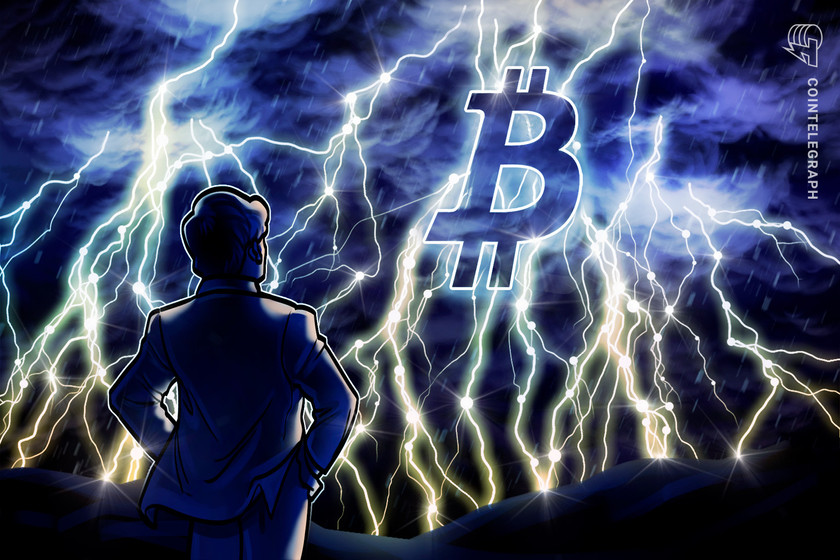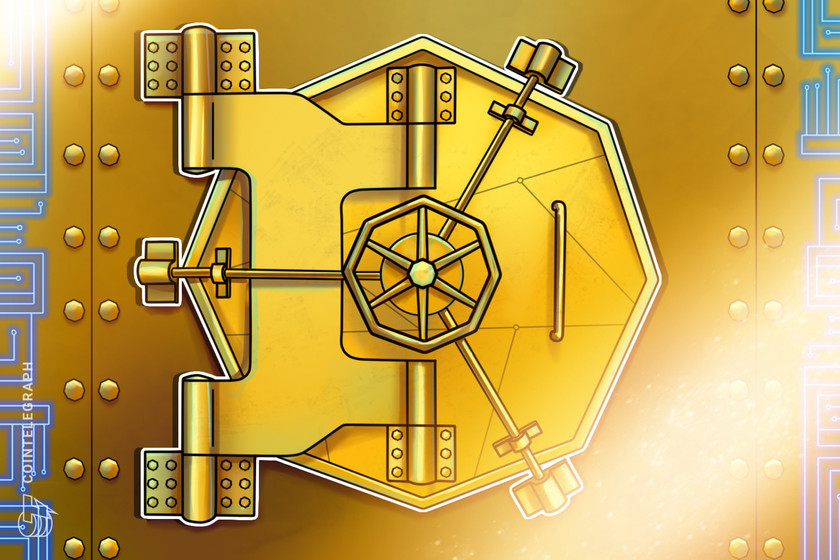The state of the Bitcoin Lightning Network in 2023


To what extent does the surge in the use of custodial wallets and difficulties in running a Lightning node undermine the Lightning Network?
The Lightning Network, a layer-2 payment solution built on top of the Bitcoin blockchain, is six years old.
Products, users and the amount of Bitcoin (BTC) sent on the Lightning Network (LN) has sky-rocketed in 2023, despite the price per Bitcoin slipping under $20,000.


The LN has benefited from the integration into the Nostr protocol — in which users can send one another satoshis (small amounts of Bitcoin) — and the proliferation of custodial and noncustodial LN wallets, and its formal integration in territories such as El Salvador and Lugano.
From Mediterranean cities to Senegal, the LN is also growing as a peer-to-peer means of payment. Nonetheless, despite its growth, concerns still stymie the network, according to key opinion leaders interviewed during Advancing Bitcoin Developer Conference in London.
Eric Sirion, co-founder of Bitcoin mobile app Fedi and maintainer of the Fedimint protocol, explained that running a Lightning node in 2023 is still difficult and that some people don’t bother when faced with the complexity:
“To keep your own Lightning node running, to keep well connected, like keep your connections up to date with the nodes that are relevant — it’s a part-time job essentially.”
Matthias Koller, co-founder of Swiss company Pocket Bitcoin, said, “It has become substantially easier compared to early 2018. However, it is still not ‘easy’ for the masses.”
“But it’s exciting to see the development around full node implementations and the progress that’s been made.”
Sirion, who wrote the open-source code Fedimint and now works on the Fedi team, explained that custodial Lightning wallets, such as Wallet of Satoshi, are popular among Bitcoin advocates. He’s right: It is the wallet of choice for Nostr, a space dominated by Bitcoiners.


However, the reliance on custodial wallets could be a problem for the LN. Trusting a third party with funds, such as Wallet of Satoshi, is contrary to the Bitcoiner mantra, “not your keys, not your coins,” Sirion said.
Furthermore, Koller explained that the reason many Bitcoiners end up sidestepping the “not your keys, not your coins” mantra is that some of the custodial solutions are just so easy. “It’s set up in seconds, ready to transact,” he said, noting:
“But in fact, it’s no different from keeping Bitcoin on an exchange — it’s not your Bitcoin. It’s risky if people aren’t aware of the risks involved and the amounts kept in custodial wallets grow in size.”
However, Koller conceded that custodial solutions are fine for “pocket money.” The LN is ideal for micropayments, but even so, trusting centralized wallet providers could erode privacy. In response to the rise in custodial wallets, one Twitter user explained, “If payments are being made from custodial mobile wallets to custodial mobile wallets it’s very simple to link senders and receivers.”
Sirion hopes that the rollout of Fedi will undermine the reliance on third parties and provide a straightforward and privacy-centric route to using Bitcoin and Lightning. Fedi uses the open-source protocol Fedimint in which trusted members of a community share ownership of Bitcoin:
“If you’re already using custodial service, at least use one where you have a reason to trust the people that are.”
Moreover, the reliance on Lightning custodial wallets could be in part due to the difficulties in running a Lightning node. Node software businesses, such as Amboss and Umbrel, attempt to remedy the issue with improved UX, but in comparison to downloading Bitcoin Core to run a Bitcoin node, there are more steps, and a deeper understanding of Bitcoin is required to run a Lightning node.
Furthermore, in the world of Venmo, Revolut and other near-instant centralized payment services, there’s a risk that Lightning’s free and frictionless payments do not necessarily solve a pressing problem. During Advancing Bitcoin, Alex Leishman, CEO of Bitcoin firm River Financial, told Cointelegraph, “Bitcoiners use Lightning mostly because it’s interesting and it’s cool. It’s not solving deep problems in their life.”
Related: Bitcoin Lightning Network growth is organic, coming from real-world adoption
Koller joked that the LN is “Bitcoin on steroids. Fast, cheap and perfect for small, daily transactions.” Plus, it’s still substantially more private than Google Pay or using Visa or Mastercard at a checkout:
“The pain I feel every time I have to use a credit card online is just gut-wrenching. Give me Lightning everywhere!”
Leishman would like to see more people working backward from real human problems observed worldwide and see where Lightning can fit in. For example, in the West, the LN could resolve inter-institutional transactions.
“It can really move the needle on a number of things in the West and in the developing world.”
In El Salvador, some Salvadorans use the Lightning Network, but cash is still king. Leishman mentions the Taro protocol, which, once implemented, could allow for assets to be issued on the Bitcoin blockchain.
“Do people actually just want dollars? And does that mean we want to try to build stablecoins on Lightning with Taro?” he said.


These assets could be deposited into Lightning Network payment channels and transacted instantly. In theory, LN users could hold several balances in their wallets, including different stablecoins or dollars.
Currently, developers can mint, send and receive Taro assets on the test network of the Bitcoin blockchain. In the meantime, LN developers will continue to seek out more user-centric Bitcoin solutions.































